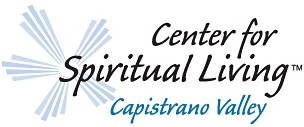I just love when modern science supports what Ernest Holmes declared nearly 100 years ago. Recently, I discovered an appreciation for podcasts. While hopping from one inspiring podcast to the next, I found Dr. Sasha Heinz, a positive psychologist and life coach. I think, if Ernest was living today, he might also be considered a positive psychologist. Like Holmes, Sasha is highly educated. She holds degrees from Harvard, Penn, and Columbia and has a down-to-earth way of explaining how our brain works.
 “The effect of our thinking on our emotions is profound,” Sasha explained during a podcast interview with LiveHappy.com.
“The effect of our thinking on our emotions is profound,” Sasha explained during a podcast interview with LiveHappy.com.
She supported that statement by quoting a study. Participants who wanted to lose weight were given a shake and told that it was a diet shake. After drinking the shake, researchers took blood samples and studied the level of full (Leptin) or hungry (Ghrelin) hormones. The next week, the participants drank the same shake but this time it was labeled as a full-fat, full-sugar milkshake. Again researchers took blood samples.
The results: When participants believed they were drinking a diet shake, the hormones that register hunger were higher (making participants believe they were hungry) and hormones related to satiety were lower. Conversely, when the participants believed they were drinking a high-calorie milkshake, the hormones that register hunger dropped and they felt full.
Dr. Sasha and the researchers concluded that our beliefs are powerful but only when we believe them and that’s the key.
As Science of Mind students, we already know that; it’s the core and substance of Spiritual Mind Treatment, reminding ourselves of Truth until we resonate with it and then declaring our desired outcome.
What if you are worrying, or believing what you DON’T want more deeply than what you DO want? Sasha recommends neutralizing the thought. In the podcast, she echoed what Abraham teaches in Ask and It Is Given. It’s too hard for our minds to go from worst-case scenario to best-case scenario in an instant. Our brain doesn’t believe the best-case scenario statement, so it’s better to start with a qualifier.
For example, if we are worrying about our health and then start saying an affirmation like, “My body is perfect, whole and complete,” our mind might say something like, “Fat chance!” Instead, Sasha recommends starting with a belief ladder. A belief ladder begins with phrases like, “It’s possible to _________” or “I’m becoming someone who _________.”
In this case, it might be easier to go from “I feel sick and tired” to “It’s possible to feel energized and rested,” or “I’m becoming someone who feels energized and rested.” With this reframing, the thought can take us to an emotion of hope, then hope influences our actions. From that emotion of hope, maybe we choose to go to bed earlier or set time aside for other forms of self-care.
 When we take the action that leads to becoming more energized and rested, our mind registers the evidence of feeling more rested and creates a new belief.
When we take the action that leads to becoming more energized and rested, our mind registers the evidence of feeling more rested and creates a new belief.
The new belief then becomes, “I am someone who feels energized and rested.”
I just thought this was so powerful. For me, I appreciate understanding how and why things work. I guess that’s why I love podcasts in the first place. If you would like to learn more from Dr. Sasha Heinz, you can find her on Instagram @drsashaheinz or visit her website at www.drsashaheinz.com. Some of my favorite podcasts from her can be found on LiveHappyNow, EmpowerHer, and The Science of Success.








